Fiscal Policy
 Decoding Federal Funding Streams in ColoradoThe Colorado state government receives a significant amount of federal money. The proposed federal budget cuts of up to $1.5 trillion over the next 10 years would inevitably have massive impacts in our state.
Decoding Federal Funding Streams in ColoradoThe Colorado state government receives a significant amount of federal money. The proposed federal budget cuts of up to $1.5 trillion over the next 10 years would inevitably have massive impacts in our state.
 In The Know: 2025 State BudgetColorado lawmakers are making some very difficult choices this budget cycle, and some of the toughest will come in the next week as they work to close a $1.2 billion funding gap.
In The Know: 2025 State BudgetColorado lawmakers are making some very difficult choices this budget cycle, and some of the toughest will come in the next week as they work to close a $1.2 billion funding gap.
 A $670 Million State Budget Deficit Will Force Impossible ChoicesLimited funds. Many competing priorities. There are no good choices when proposing a budget that requires recession-level cuts to state services. An investment in one government service means a reduction elsewhere.
A $670 Million State Budget Deficit Will Force Impossible ChoicesLimited funds. Many competing priorities. There are no good choices when proposing a budget that requires recession-level cuts to state services. An investment in one government service means a reduction elsewhere.
 Discerning Colorado Voters Support Increased Public FundingColorado voters favored increased spending, increased taxes, and exempting local tax revenue from TABOR, showing an overall readiness to move toward funding community priorities like education, transportation, child care, health care, and other crucial programs.
Discerning Colorado Voters Support Increased Public FundingColorado voters favored increased spending, increased taxes, and exempting local tax revenue from TABOR, showing an overall readiness to move toward funding community priorities like education, transportation, child care, health care, and other crucial programs.
 Communities Look to Ballot to Raise RevenueSeveral local governments are asking their voters to opt out of the revenue cap imposed by TABOR and redirect some of the funds from lodging taxes to address child care and affordable housing needs in these communities.
Communities Look to Ballot to Raise RevenueSeveral local governments are asking their voters to opt out of the revenue cap imposed by TABOR and redirect some of the funds from lodging taxes to address child care and affordable housing needs in these communities.
 In the Know: The True Cost of School Voucher ProgramsAs more states have adopted voucher programs, spending for public schools has decreased, disproportionately hurting students in higher poverty areas.
In the Know: The True Cost of School Voucher ProgramsAs more states have adopted voucher programs, spending for public schools has decreased, disproportionately hurting students in higher poverty areas.
 September Revenue Forecast: A Dangerously Strained BudgetThe September revenue forecast shows an increasingly constrained fiscal situation for the state of Colorado. Lawmakers will face a $921 million dollar difference between projected expenses and allowable revenue.
September Revenue Forecast: A Dangerously Strained BudgetThe September revenue forecast shows an increasingly constrained fiscal situation for the state of Colorado. Lawmakers will face a $921 million dollar difference between projected expenses and allowable revenue.
 Progress on Financial Empowerment in ColoradoThe Office of Financial Empowerment is making valuable progress in building the statewide infrastructure necessary to ensure the financial well-being of Colorado families and communities.
Progress on Financial Empowerment in ColoradoThe Office of Financial Empowerment is making valuable progress in building the statewide infrastructure necessary to ensure the financial well-being of Colorado families and communities.
 Colorado General Assembly - Special Session Tracker 2023
Colorado General Assembly - Special Session Tracker 2023
 Who Pays?This two-part series explores the stark and complex differences in taxing across Colorado.
Who Pays?This two-part series explores the stark and complex differences in taxing across Colorado.
 Local Ballot MeasuresA closer look at three measures up for a vote in the November election.
Local Ballot MeasuresA closer look at three measures up for a vote in the November election.
 In The Know: New Protections for Colorado ConsumersColorado consumers will have important new protections thanks to the passing of HB23-1229.
In The Know: New Protections for Colorado ConsumersColorado consumers will have important new protections thanks to the passing of HB23-1229.
 The Bell Supports Proposition HH: Property Tax Relief That Helps SchoolsLearn how Proposition HH can provide needed tax relief to Colorado homeowners without cutting funding for schools and other services.
The Bell Supports Proposition HH: Property Tax Relief That Helps SchoolsLearn how Proposition HH can provide needed tax relief to Colorado homeowners without cutting funding for schools and other services.
 Colorado's Revenue BaseUnderstanding how Colorado's revenue base is comprised will help us make decisions of how to proceed in a fiscally prudent manner.
Colorado's Revenue BaseUnderstanding how Colorado's revenue base is comprised will help us make decisions of how to proceed in a fiscally prudent manner.
 Tax Credits for Working FamiliesTargeted tax credits are important parts of supporting working families. Here are is some information about two of the biggest ones.
Tax Credits for Working FamiliesTargeted tax credits are important parts of supporting working families. Here are is some information about two of the biggest ones.
 Tax Contributions of Undocumented ImmigrantsIf 10% of undocumented immigrants left Colorado, the state would lose $23.8 million in federal taxes and $12.4 million in state and local taxes.
Tax Contributions of Undocumented ImmigrantsIf 10% of undocumented immigrants left Colorado, the state would lose $23.8 million in federal taxes and $12.4 million in state and local taxes.
 New Report: Economic Mobility for Colorado's Low-Income FamiliesA new report shows how intentional state spending can work to better support Coloradans' economic mobility and move families into the middle class.
New Report: Economic Mobility for Colorado's Low-Income FamiliesA new report shows how intentional state spending can work to better support Coloradans' economic mobility and move families into the middle class.
 Key Budget Takeaways for this SessionAn analysis on how the Joint Budget Committee balanced the budget during the 2020 session and how that impacted Coloradans and key programs and services.
Key Budget Takeaways for this SessionAn analysis on how the Joint Budget Committee balanced the budget during the 2020 session and how that impacted Coloradans and key programs and services.
 The Future of Work: COVID-19's Impact on WomenIn our new brief, we build on previous research and examine many of the ways women have fared over the course of the pandemic.
The Future of Work: COVID-19's Impact on WomenIn our new brief, we build on previous research and examine many of the ways women have fared over the course of the pandemic.
 2020 Ballot Guide: Analysis & RecommendationsWith 11 statewide measures on Colorado's ballot this year, the Bell Policy Center's 2020 Ballot Guide provides expert analysis and in-depth recommendations for voters.
2020 Ballot Guide: Analysis & RecommendationsWith 11 statewide measures on Colorado's ballot this year, the Bell Policy Center's 2020 Ballot Guide provides expert analysis and in-depth recommendations for voters.
123

Decoding Federal Funding Streams in ColoradoThe Colorado state government receives a significant amount of federal money. The proposed federal budget cuts of up to $1.5 trillion over the next 10 years would inevitably have massive impacts in our state.
|
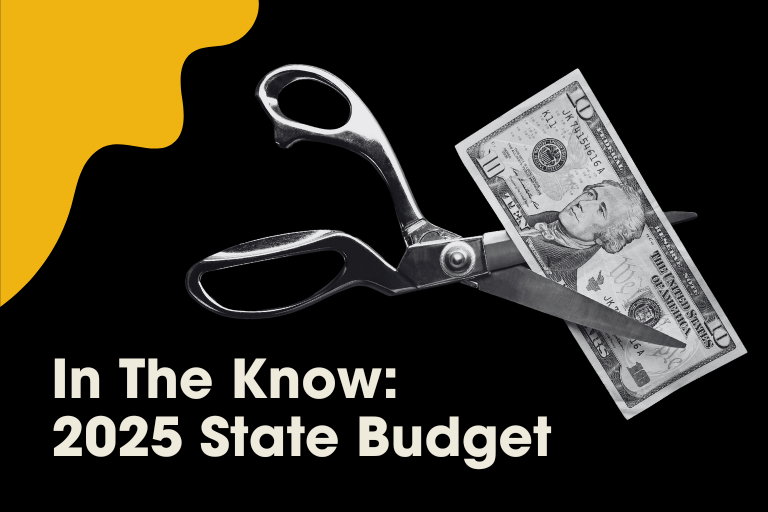
In The Know: 2025 State BudgetColorado lawmakers are making some very difficult choices this budget cycle, and some of the toughest will come in the next week as they work to close a $1.2 billion funding gap.
|
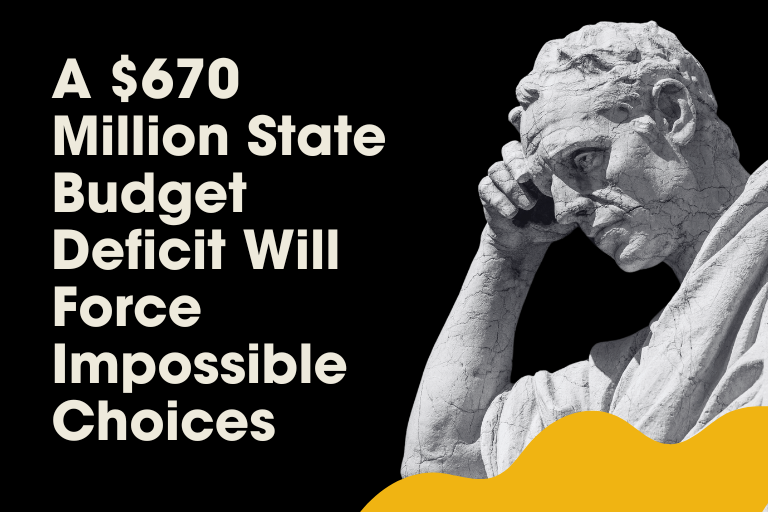
A $670 Million State Budget Deficit Will Force Impossible ChoicesLimited funds. Many competing priorities. There are no good choices when proposing a budget that requires recession-level cuts to state services. An investment in one government service means a reduction elsewhere.
|

Discerning Colorado Voters Support Increased Public FundingColorado voters favored increased spending, increased taxes, and exempting local tax revenue from TABOR, showing an overall readiness to move toward funding community priorities like education, transportation, child care, health care, and other crucial programs.
|
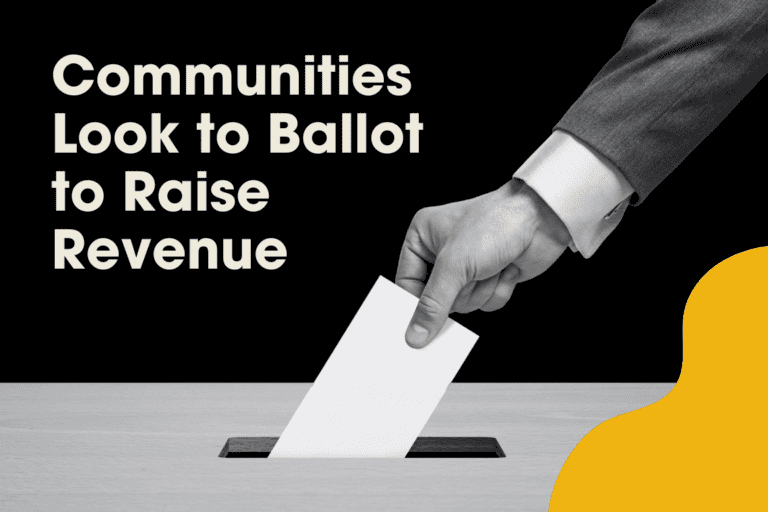
Communities Look to Ballot to Raise RevenueSeveral local governments are asking their voters to opt out of the revenue cap imposed by TABOR and redirect some of the funds from lodging taxes to address child care and affordable housing needs in these communities.
|

In the Know: The True Cost of School Voucher ProgramsAs more states have adopted voucher programs, spending for public schools has decreased, disproportionately hurting students in higher poverty areas.
|
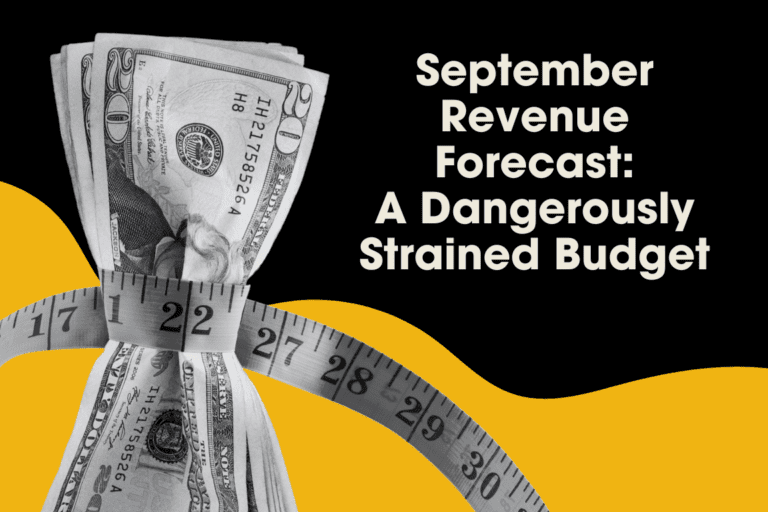
September Revenue Forecast: A Dangerously Strained BudgetThe September revenue forecast shows an increasingly constrained fiscal situation for the state of Colorado. Lawmakers will face a $921 million dollar difference between projected expenses and allowable revenue.
|

Progress on Financial Empowerment in ColoradoThe Office of Financial Empowerment is making valuable progress in building the statewide infrastructure necessary to ensure the financial well-being of Colorado families and communities.
|

Colorado General Assembly - Special Session Tracker 2023
|

Who Pays?This two-part series explores the stark and complex differences in taxing across Colorado.
|
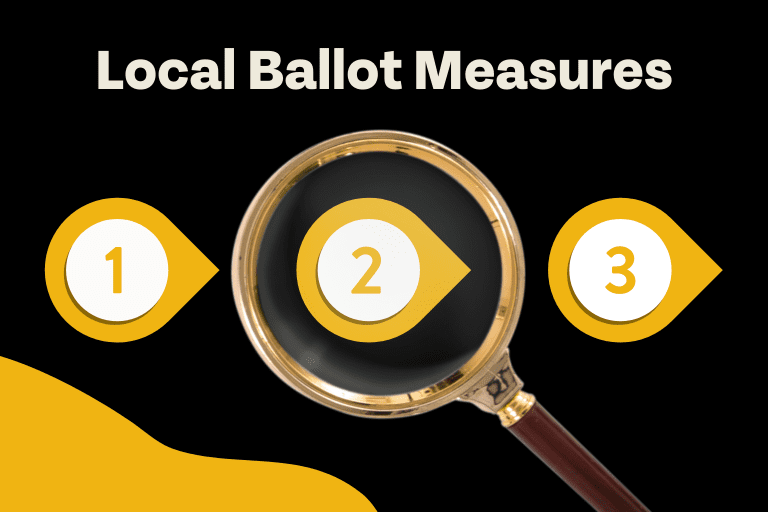
Local Ballot MeasuresA closer look at three measures up for a vote in the November election.
|

In The Know: New Protections for Colorado ConsumersColorado consumers will have important new protections thanks to the passing of HB23-1229.
|

The Bell Supports Proposition HH: Property Tax Relief That Helps SchoolsLearn how Proposition HH can provide needed tax relief to Colorado homeowners without cutting funding for schools and other services.
|

Colorado's Revenue BaseUnderstanding how Colorado's revenue base is comprised will help us make decisions of how to proceed in a fiscally prudent manner.
|

Tax Credits for Working FamiliesTargeted tax credits are important parts of supporting working families. Here are is some information about two of the biggest ones.
|

Tax Contributions of Undocumented ImmigrantsIf 10% of undocumented immigrants left Colorado, the state would lose $23.8 million in federal taxes and $12.4 million in state and local taxes.
|

New Report: Economic Mobility for Colorado's Low-Income FamiliesA new report shows how intentional state spending can work to better support Coloradans' economic mobility and move families into the middle class.
|

Key Budget Takeaways for this SessionAn analysis on how the Joint Budget Committee balanced the budget during the 2020 session and how that impacted Coloradans and key programs and services.
|

The Future of Work: COVID-19's Impact on WomenIn our new brief, we build on previous research and examine many of the ways women have fared over the course of the pandemic.
|
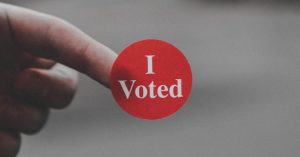
2020 Ballot Guide: Analysis & RecommendationsWith 11 statewide measures on Colorado's ballot this year, the Bell Policy Center's 2020 Ballot Guide provides expert analysis and in-depth recommendations for voters.
|
1
2
3

